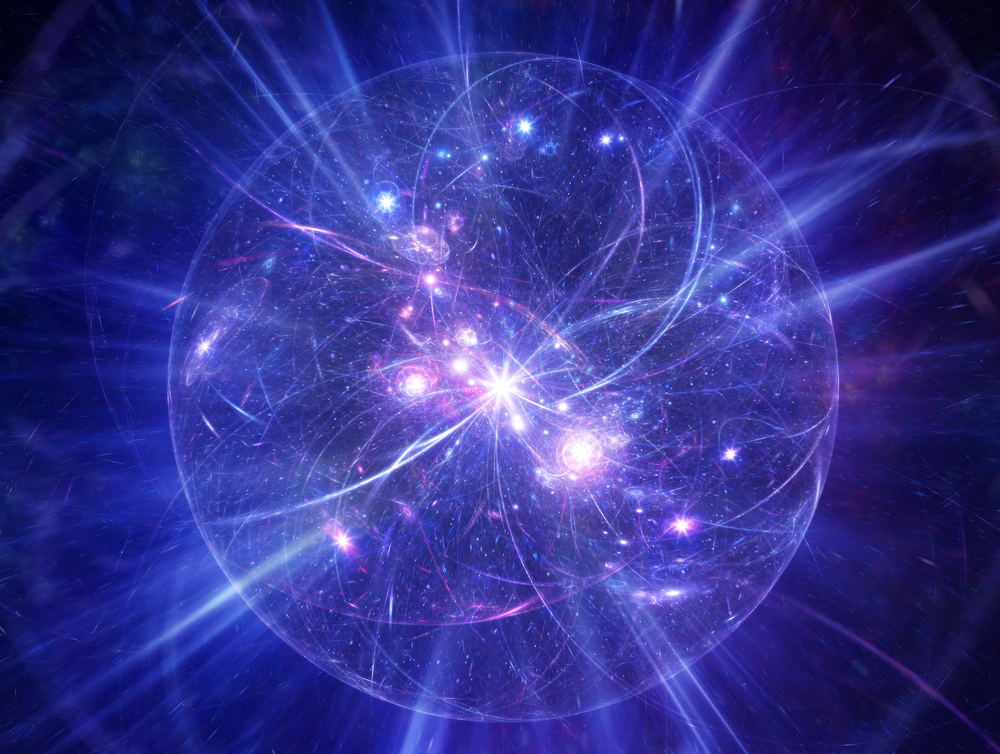
Whether in science or religion, there’s a prominent notion that our universe had a beginning. For instance, the first book of the Torah is named Bereshit, which means “in the beginning” in Hebrew. And most of us see the Big Bang as our universe’s origin point. But what if that’s not the entire story? Some scientists theorize that our universe may not actually have a beginning.
Gravity, Spacetime, and the Big Bang
We understand the Big Bang as the moment when our universe expanded from a hot and super-condensed ball of stuff. From there, all that stuff expanded. Matter, energy, and the four fundamental forces began developing. Eventually, this led to the formation of planets, stars, and other celestial bodies.
As critical as this moment is to our existence, it’s also one of two points where Einstein’s theory of relativity doesn’t quite work. The other is inside the center of a black hole. Quantum gravity theoretical physics looks at unusual situations like these. It examines gravity’s behavior with quantum mechanics principles: how gravity works with atomic and subatomic particles.
Casual Set Theory and a Pre–Big Bang Universe
“What if the universe had no beginning?” asks astrophysicist Paul Sutter in an October 2021 LiveScience piece. As Sutter explains, a new quantum gravity theory has prompted this question. Causal set theory separates space and time into separate units of spacetime. Eventually, so the theory goes, you’ll end up with a fundamental spacetime unit. Although it’s not an exact analogy, you can think of breaking down these spacetime units like breaking down a kilometer. You’ll end up with meters, centimeters, millimeters, and micrometers until you get down to nanometers.
Along with several colleagues, University of Liverpool physicist Bruno Bento applied casual set theory to the Big Bang. We tend to think of spacetime as continuous, but casual set theory does not. Instead, it conceives of spacetime as chunks. Per this theory, you can’t connect two of these chunks together any closer than the length of a single chunk.
Causal set theory also posits that singularities like the Big Bang cannot exist because the stuff of the universe can’t be packed into infinitely tiny points. The only other possibility is that something did exist before that moment 13.8 billion years ago — and that means the universe may not have a beginning.
Stephen Hawking, the Big Bounce, and Hindu Cosmology
A universe with no beginning sounds like a new and radical concept. But Stephen Hawking proposed the same basic idea in 1981. Quanta Magazine’s Natalie Wolchover mentions that he grappled with a critical question, “Where did that superdense point in the Big Bang come from?” And it’s a logical question. How would it have existed in the first place? Hawking posited that the universe had no beginning, and perhaps no end. Before the Big Bang moment, it may have existed as a quantum potential or simply pure space instead of spacetime.
Hawking’s “no-boundary” theory isn’t the only alternative explanation. The Big Bounce theory proposes that the universe expands and contracts in cycles, with each one triggered by a new Big Bang. This idea has a counterpart in Hinduism: yugas. Hindu cosmology conceives of existence in cycles consisting of four yugas, each a distinct age with its own historical and social characteristics. At the end of the fourth, the universe is destroyed and later recreated after a period of dormancy.
Big Questions, Bigger Answers?
We see the presence of cycles in our natural world: our planet’s rotation, the seasons, and even food chains. Perhaps our universe itself exists in a series of cycles, or something else was there before the Big Bang. Whatever the case, we can only seek additional knowledge to learn more about our existence. And it may not be possible to discover everything that makes it tick.

